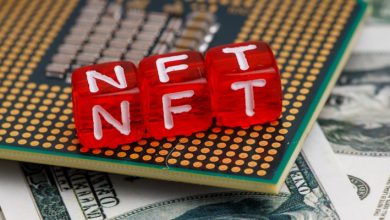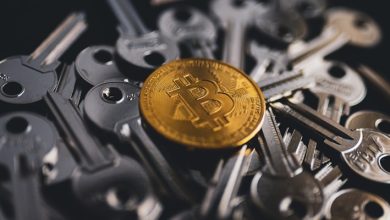Investing in DeFi Projects: What You Need to Know

- Understanding DeFi and its potential
- Risks and rewards of investing in DeFi projects
- Key factors to consider before investing in DeFi
- How to identify promising DeFi projects
- Regulatory challenges in the DeFi space
- The future of DeFi and its impact on traditional finance
Understanding DeFi and its potential
Understanding decentralized finance (DeFi) and its potential is crucial for investors looking to capitalize on this emerging trend in the financial industry. DeFi refers to a system where financial products and services are built on blockchain technology, eliminating the need for traditional intermediaries such as banks. This opens up a world of possibilities for investors, including higher returns, lower fees, and increased accessibility.
One of the key advantages of DeFi is its ability to provide financial services to individuals who are underserved or excluded from the traditional banking system. By leveraging blockchain technology, DeFi projects can offer services such as lending, borrowing, trading, and more to anyone with an internet connection. This has the potential to democratize finance and empower individuals around the world.
Investing in DeFi projects can be highly lucrative, but it also comes with risks. Due to the decentralized nature of these projects, there is a higher risk of smart contract bugs, hacks, and other vulnerabilities. It is essential for investors to conduct thorough research before investing in any DeFi project and to only allocate funds that they can afford to lose.
Risks and rewards of investing in DeFi projects
Investing in DeFi projects can be a lucrative opportunity for those looking to diversify their portfolio and potentially earn high returns. However, it is essential to understand the risks and rewards associated with this type of investment.
One of the main risks of investing in DeFi projects is the volatility of the market. Prices can fluctuate dramatically in a short period, leading to potential losses for investors. Additionally, the decentralized nature of DeFi projects means that there is a higher risk of fraud and hacking compared to traditional investments.
On the other hand, the rewards of investing in DeFi projects can be significant. With the potential for high returns and the ability to access a wide range of investment opportunities, DeFi projects can offer investors a unique way to grow their wealth.
It is crucial for investors to carefully research and assess the risks and rewards of investing in DeFi projects before committing any funds. By understanding the market dynamics and staying informed about the latest developments, investors can make informed decisions and maximize their chances of success in the DeFi space.
Key factors to consider before investing in DeFi
Investing in DeFi projects can be a lucrative opportunity, but it is essential to consider several key factors before diving in.
One crucial aspect to evaluate is the **security** of the DeFi project. Conduct thorough **research** on the project’s **security** measures, such as audits, smart contract **reviews**, and the team’s **track record** in handling **security** incidents.
Another important factor to consider is the **liquidity** of the project. **Liquidity** is vital for **trading** and **investment** purposes, so ensure that the DeFi project has sufficient **liquidity** to accommodate your needs.
Additionally, assess the **team** behind the DeFi project. Look into their **experience**, **credentials**, and **past projects** to gauge their **competence** and **reliability**. A strong and **experienced** team is more likely to steer the project towards success.
Furthermore, analyze the **tokenomics** of the DeFi project. Understand the **token** **distribution**, **utility**, and **incentives** to determine the **long-term** **viability** of the project.
Lastly, consider the **regulatory** environment surrounding the DeFi project. **Regulatory** **compliance** is crucial for **sustainability** and **legitimacy**, so ensure that the project adheres to **applicable** **laws** and **regulations**.
By carefully evaluating these key factors, you can make informed decisions when investing in DeFi projects and mitigate potential risks.
How to identify promising DeFi projects
When looking to invest in DeFi projects, it is crucial to identify promising opportunities that have the potential for growth and success. Here are some key factors to consider when evaluating DeFi projects:
- Team: Look for projects with experienced and reputable teams behind them. A strong team can help navigate the complexities of the DeFi space and drive the project towards success.
- Technology: Evaluate the technology and infrastructure that the project is built on. Projects that leverage innovative technology and have a solid technical foundation are more likely to succeed in the long run.
- Community: Consider the size and engagement of the project’s community. A strong and active community can help drive adoption and growth for the project.
- Use case: Assess the real-world use case and utility of the project. Projects that solve a genuine problem or offer a valuable service are more likely to attract users and investors.
- Security: Security is paramount in the DeFi space. Look for projects that prioritize security measures and have undergone rigorous audits to ensure the safety of user funds.
By carefully evaluating these factors, you can identify promising DeFi projects that have the potential to deliver strong returns on your investment. Remember to conduct thorough research and due diligence before committing your funds to any project.
Regulatory challenges in the DeFi space
One of the major challenges facing decentralized finance (DeFi) projects is navigating the complex regulatory landscape. As the popularity of DeFi continues to grow, regulators around the world are taking notice and starting to scrutinize these projects more closely. This increased regulatory scrutiny can pose a significant risk to investors, as it may lead to legal challenges, fines, or even the shutdown of DeFi platforms.
Regulatory challenges in the DeFi space can vary depending on the jurisdiction in which a project operates. Some countries have embraced DeFi and are working to create clear regulatory frameworks to support its growth. Others, however, have taken a more cautious approach, raising concerns about the potential risks associated with decentralized finance.
One of the key issues facing DeFi projects is the question of whether they should be subject to the same regulations as traditional financial institutions. Regulators are grappling with how to apply existing laws to this new and rapidly evolving sector, leading to uncertainty for both projects and investors.
Another challenge is the anonymity and pseudonymity of participants in DeFi transactions. This can make it difficult for regulators to track and monitor potentially illicit activities, such as money laundering or terrorist financing. As a result, some regulators are calling for greater transparency and accountability in the DeFi space.
The future of DeFi and its impact on traditional finance
The future of decentralized finance (DeFi) is poised to revolutionize the traditional financial sector in profound ways. As DeFi projects continue to gain traction and popularity, they are challenging the status quo of centralized financial institutions. The impact of DeFi on traditional finance is already being felt, with more people turning to decentralized platforms for lending, borrowing, and trading.
DeFi offers a level of transparency, security, and accessibility that traditional finance simply cannot match. By leveraging blockchain technology and smart contracts, DeFi projects eliminate the need for intermediaries, reducing costs and increasing efficiency. This has the potential to democratize finance and provide financial services to underserved populations around the world.
As DeFi continues to evolve and mature, it is likely to attract more attention from institutional investors and mainstream financial institutions. This could lead to greater integration between DeFi and traditional finance, blurring the lines between the two sectors. While there are regulatory challenges and risks associated with DeFi, the potential benefits are too significant to ignore.
In conclusion, the future of DeFi is bright, and its impact on traditional finance will be transformative. As investors, it is essential to stay informed about the latest developments in the DeFi space and carefully evaluate investment opportunities in this rapidly growing sector. By understanding the potential of DeFi and its implications for traditional finance, investors can position themselves to capitalize on this exciting new frontier in the world of finance.



